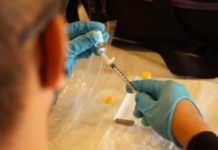NEW DELHI– A drug commonly used to treat type 2 diabetes may also be effective against prostate cancer, according to a new study by researchers at the Medical University of Vienna. The findings could open the door to new treatment options for one of the most common cancers in men.
The study, published in the journal Molecular Cancer, focused on the protein PPARγ (peroxisome proliferator-activated receptor gamma), a key regulator of metabolic processes. Researchers discovered that PPARγ not only plays a crucial role in diabetes but also influences the growth of prostate cancer cells.
PPARγ is already a known target of thiazolidinediones—a class of drugs used to manage type 2 diabetes. One such drug, pioglitazone, was found to affect the activity of PPARγ in a way that suppresses the growth and metabolic activity of prostate tumor cells.
“Our findings showed that the diabetes drug pioglitazone influences PPARγ activity and inhibits the growth behavior and metabolism of tumor cells,” said Emine Atas from the Department of Biomedical Imaging and Image-Guided Therapy at the university. “Preliminary data also indicated that prostate cancer patients with diabetes who were treated with PPARγ agonists had not relapsed at the time of data collection.”
The researchers conducted their study using cell cultures and tissue samples from patient cohorts to explore how different activation states of PPARγ affect cancer cell behavior.
Prostate cancer is the most frequently diagnosed cancer among men, with an estimated 1.4 million new cases and 375,000 deaths worldwide in 2020. Current treatment options include surgery, radiation therapy, and various medications. However, the discovery of new molecular pathways involved in cancer progression could pave the way for more targeted and effective therapies.
The study’s authors emphasized that PPARγ represents a promising molecular target for future prostate cancer treatment and noted that further research is already underway to explore its full potential. (Source: IANS)












